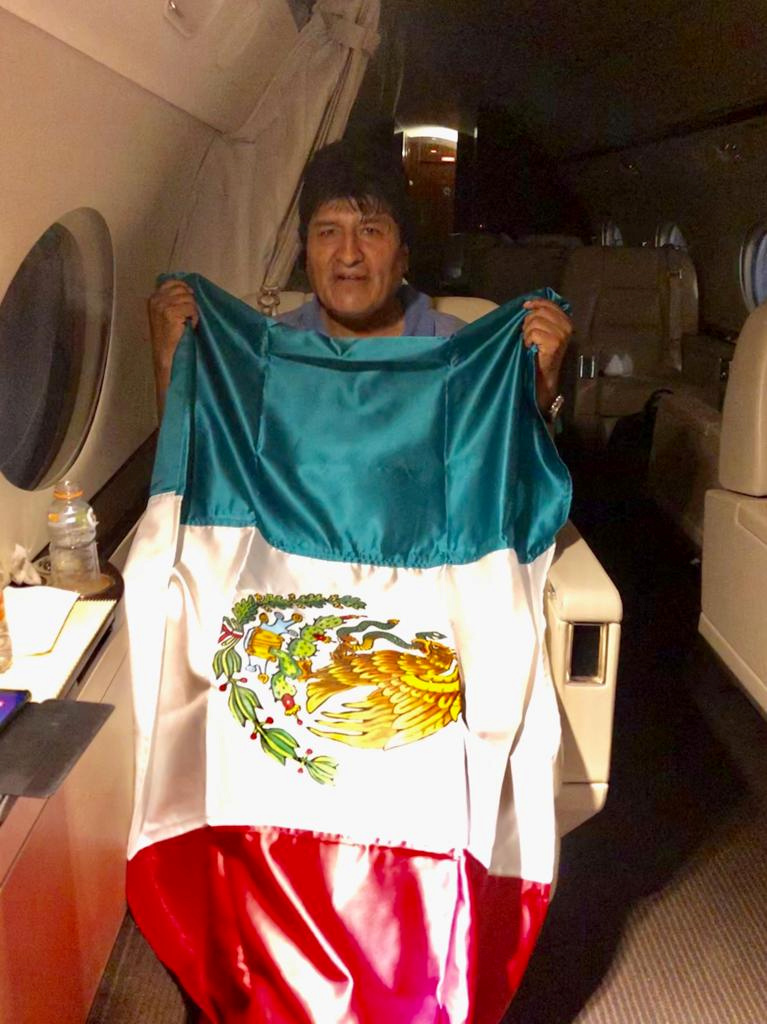Morales heads for Mexican exile
By Pan Mengqi | China Daily | Updated: 2019-11-13 09:44

Evo Morales, who resigned as Bolivia's president on Sunday, flew to Mexico on Monday evening while the senator expected to succeed him pledged to call fresh elections.
Morales' government collapsed on Sunday after ruling party allies quit and the army urged him to step down in the wake of a disputed general election.
Mexico's Foreign Minister Marcelo Ebrard said he had received a call from Morales "to verbally and formally request asylum in our country" and that the request had been granted.
Ebrard said Morales' life was in danger and the decision to grant him asylum was in Mexico's long tradition of sheltering exiles.
Jeanine Anez, 52, a vice president and the deputy Senate speaker, is constitutionally in line to become Bolivia's interim president. According to local media reports, the parliament was expected on Tuesday to appoint her to oversee fresh elections and manage the transition to a new government by Jan 22.
Morales, 43, who had been in office for almost 14 years, boarded a Mexican government plane late on Monday night from the central Bolivian town of Chimore. In a tweet, he confirmed he was departing for Mexico, but pledged to return with more "strength and energy".
Ebrard said his government viewed the events in Bolivia as a "coup" because the military broke with the constitutional order by pressing Morales to resign.
Observers said the former president's departure has added to a sense of crisis in Latin America, which has been hit by weeks of unrest in Ecuador and Chile, where protesters urged governments to reverse hikes on fuel and transport prices.
Following Morales' lead, at least 50 officials from his Movement for Socialism party have resigned in the past several days following protests that led some to set ablaze the homes of officials. The protesters claimed Morales' reelection last month was "illegal" as an international monitor questioned the validity of his victory.
The Organization of American States, or OAS, which monitored the elections, agreed, concluding there was "clear manipulation" in ballot counting and called for the results to be annulled.
But Xu Shicheng, a fellow at the Chinese Academy of Social Sciences, said the OAS was backed by the United States, whose intervention has been the driving force behind most of the unrest in Latin America.
In an interview, US President Donald Trump hailed Morales' resignation as a "significant moment for democracy in the Western Hemisphere", and praised the role of the country's military.
"These events send a strong signal to the illegitimate regimes in Venezuela and Nicaragua that democracy and the will of the people will always prevail," Trump said, referring to two other Latin American nations targeted by his administration. Venezuela and Cuba meanwhile denounced what they called a coup.
Xu said although Bolivia's economy has grown rapidly under Morales' governance, some of the country's residents had grown dissatisfied with the government, mainly instigated by foreign forces' intervention in the country's politics.
























